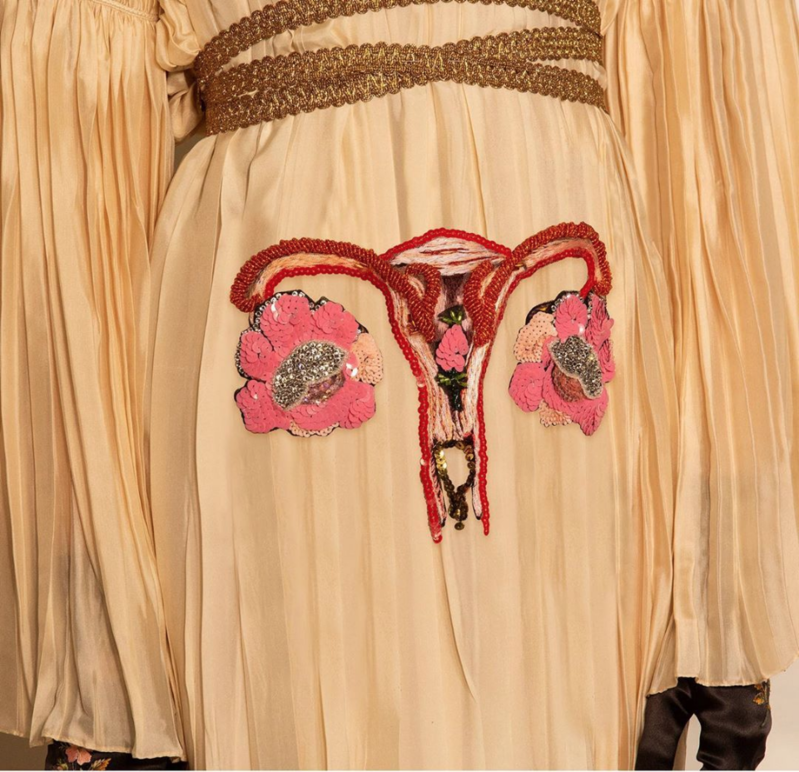Gucci’s Capitoline Museums Show Gets Political
The Italian fashion house’s 2020 Cruise Show had already raised interest when it was revealed that it would be held in Rome’s Capitoline Museums, which, having opened their doors in 1734, are considered the world’s first modern museum and host an immense collection of some of the Classical world’s most iconic artefacts.
This isn’t the first time that Gucci has chosen to present its collections in an unconventional space, Alessandro Michele, the brand’s creative director since 2015, has been building an ongoing dialog between his designs and the ancient world, mixing together elements from both.
Recent Gucci shows have been held at a variety of culturally significant locations ranging from the Cloisters of Westminster Abbey in London, to the Palatine Gallery at Pitti Palace in Florence, all the way to the more contemporary Dia Art Foundation in New York. And the photoshoot for the Pre-Fall 2019 Collection was realized in the archaeological parks of Pompeii, Herculaneum and Selinunte.
“My new cruise collection is, as usual, an homage to many things and to different cultures and historical moments. Among other citations, there are some references to the Seventies,” Michele says in an interview for WWD, “It was a historical moment when women — finally — rejected all the constraints that were imposed in the previous centuries and they became free.”
This time, in fact, Michele added a new dimension to this dialog between past and present by featuring slogans and symbols evoking current and previous women’s rights and the pro-choice movements, in light of the recent anti-abortion laws that have been passed in parts of the United States. These symbols appear throughout the show and even on some of the clothes themselves.
Just to cite some examples, the 70s feminist slogan “My Body My Choice” is featured on items from both the women’s and men’s collections, the date May 22, 1978 appears on several pieces, commemorating the moment abortion became legal in Italy, and a red and pink uterus is beautifully embroidered onto a pleated roman toga-inspired silk gown.
Female reproductive rights have become a hot topic recently, in the wake of the resurfacing of anti-choice movements, which have gained enough following to effectively “turn back time” and get some US states including Alabama and Missouri to pass abortion bans. The issue has also been discussed just next door to the Capitoline Museums, in the Vatican, where the Pope recently compared abortion to hiring a “hitman to solve a problem.”
“It’s unbelievable that around the world there are still people who believe that they can control a woman’s body, a woman’s choice,” comments the designer, who recognizes that he is in the privileged position of being able to reach large audiences without being censored “I’ve been given the megaphone and I really want to use it for a purpose,” he states.
In 2013, Gucci founded Chime For Change, a campaign led by Salma Hayek and Beyoncé “to convene, unite and strengthen the voices speaking out for gender equality.” So far, it has raised over $15 million to support projects and advocacy in 89 countries. Gucci has also been fighting domestic violence in Italy, training 160 ambassadors in cooperation with the D.i.R.e (Women’s Network Against Violence), the first Italian association of independent women’s centers and shelters against violence.
Gucci’s social engagement is not an isolated case. Nowadays, everyone is expected to have and express their opinion on just about anything. Consequentially, we are seeing more and more brands, celebrities, influencers, and all sorts of public figures taking stances, weighing in on current cultural and social issues.
And, in fact, many celebrities sided with Michele on this occasion: Elton John, Salma Hayek, Harry Styles, Asap Rocky, Saorsie Ronan, Zoe Saldana, just to name a few, were present at the event. Not to mention Italian figures such as Alessandro Borghi, Valeria Golino, and even former Prime Minister Matteo Renzi and Mayor of Rome Virginia Raggi, who reportedly stood up and clapped at the end of the show.
However, unsurprisingly, other Italian politicians - particularly representatives of the 5 Star Movement - expressed their outrage against the event and reprimanded the Museum for accepting to host it, even though Gucci has promised to make a donation to support the restoration project of the Rupe Tarpea, the rock face on the southern side of the Campidoglio, over the next two years, similarly to what other Italian brands such as Fendi and Bulgari have done in the past.
Whatever your stance may be, it’s an undeniable fact that today a fashion show can fully engage with social, political, and cultural issues. And that may be a little scary to consider but also exciting and potentially an effective way of promoting social advancement and human rights.








































i-Italy
Facebook
Google+
This work may not be reproduced, in whole or in part, without prior written permission.
Questo lavoro non può essere riprodotto, in tutto o in parte, senza permesso scritto.